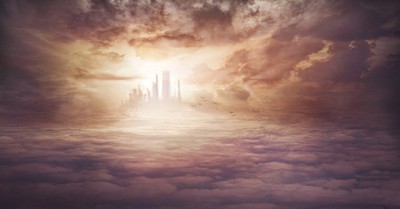President Trump Endorses Israel’s Sovereignty over the Golan Heights

President Trump endorsed Israeli sovereignty over the Golan Heights yesterday, marking what the Wall Street Journal calls a “sharp U.S. policy shift.” The move came during US Secretary of State Mike Pompeo’s visit to Israel and before Israeli Prime Minister Benjamin Netanyahu visits the White House next week.
Why does the region known as the “Golan Heights” matter to Israel and to the world?
An area twice the size of Dallas
The Golan Heights is an elongated, elevated area approximately forty miles long and twelve miles wide. It comprises 690 square miles (about twice the size of Dallas, Texas). The Golan (as it is known) borders Israel and the Sea of Galilee to the west, Syria to the east, Jordan to the south, and Lebanon to the north.
I have visited the area many times over the last twenty-five years. It is a spectacularly beautiful region dominated by hills and valleys. It is also one of the most strategic military areas in the world.
The Golan was part of Syria until the Six-Day War (June 5–10, 1967) between Israel and Egypt, Syria, Jordan, and Iraq. During the war, Israel gained control of the Golan and soon began settlements there. In the 1973 Yom Kippur War, Syrian forces overran the southern Golan in a surprise offensive before they were expelled by an Israeli counteroffensive.
Israel and Syria signed a ceasefire in 1974 that left most of the Golan in Israel’s control. In 1981, Israel passed the Golan Heights Law that effectively annexed the territory. The international community rejects Israel’s claim to the region, recognizing it as Syrian territory.
Prime Minister Netanyahu, who has long claimed that Israel must control the Golan to protect its national security, hailed Mr. Trump’s move. Critics say the president’s announcement will jeopardize peace efforts in the region and violates a UN resolution that rules out acquiring territory by war.
Three millennia of conflicted history
I have been leading a study tour to the Holy Land this week. Each time I come to Israel, I am impressed again by the courage of her people amid this chaotic region.
Each time I come to Israel, I am impressed again by the courage of her people amid this chaotic region.
Israel’s history here begins with God’s promise to Abraham as he journeyed through the land of Canaan: “To your offspring I will give this land” (Genesis 12:7). Abraham’s grandson Jacob fathered twelve sons whose descendants became the twelve “tribes of Israel” when they conquered the Promised Land under Joshua.
The ten northern tribes separated from the two southern tribes in 922 BC, comprising the Northern Kingdom (Israel) and the Southern Kingdom (Judah). The Northern Kingdom was conquered by Assyria in 722 BC. The Southern Kingdom was conquered by Babylon, whose armies destroyed Jerusalem in 587/86 and enslaved the people. In 538 BC, the Persian conqueror of Babylon, Cyrus the Great, allowed the Jews to return to their homeland.
Israel remained under the dominance of the Persians, then the Greeks. The Jews revolted in 167 BC, regaining their independence until 63 BC, when the Roman general Pompey conquered Jerusalem and brought Israel under Roman control.
The Jews revolted against Rome in AD 66, an uprising that led to the destruction of their temple in AD 70. After a failed second revolt (AD 132–35), many Jews were sold into slavery, and Jerusalem was turned into a pagan city called Aelia Capitolina. The Roman emperor Hadrian changed the country’s name from Judea to Syria Palestina.
The region was successively controlled by the Romans, the Byzantines, the Arabs, the Crusaders, the Mamluks (Egypt), the Ottoman Empire, and the British. It would be known as Palestine until 1948, when the State of Israel declared its independence.
To summarize: Israel has been enslaved and dominated by foreign powers for most of the last three millennia. The nation won its hard-fought independence seventy-one years ago and has been threatened by various enemies ever since.
“Pray for the peace of Jerusalem!” (Psalm 122:6)
Modern-day Israel is a tiny country (approximately the size of New Jersey). About 6.5 million Jews live in the country, along with 1.8 million Arabs and four hundred thousand others.
Hamas controls the Gaza Strip to the southwest and is pledged to the destruction of Israel. Hezbollah (a proxy of Iran) controls Lebanon to the north and is pledged to the same. Iran continually calls for Israel’s destruction.
In the face of such threats, the Israeli people are remarkably resilient. If you had been traveling with me this week, you would have encountered a vibrant culture on the cutting edge of technological innovation. The people are passionately committed to their nation and will do whatever it takes to defend themselves.
I pray daily for the peace of Jerusalem (Psalm 122:6). But I also pray daily for the Palestinian people. Our group traveled to Bethlehem Wednesday to visit the Church of the Incarnation and meet some dear Palestinian friends with whom I have worked on study tours for many years. These friends are committed Christians; their people deserve to live in peace and security as well.
The most important battle in this world
How will lasting peace come to the conflicted region?
True peace is impossible apart from the Prince of Peace.
That’s not for me to determine. But I can say this: true peace is impossible apart from the Prince of Peace.
The greatest need in Israel is for her people to make Jesus their Messiah and Lord. The greatest need for the Palestinian people is for them to make Isa (Arabic for Jesus) their Savior and Lord.
As political vitriol in the US and the Brexit controversy in the UK illustrate, no nation has been or will ever be free from conflict and turmoil. But Christians are fighting a different battle:
The most important battle in this world is not for this world but for the next.
“Though we walk in the flesh, we are not waging war according to the flesh. For the weapons of our warfare are not of the flesh but have divine power to destroy strongholds. We destroy arguments and every lofty opinion raised against the knowledge of God, and take every thought captive to obey Christ” (2 Corinthians 10:3–5).
The most important battle in this world is not for this world but for the next.
For more from the Denison Forum, please visit www.denisonforum.org.
The Daily Article Podcast is Here!
Publication Date: March 22, 2019
Photo Courtesy: Getty Images/Lior Mizrahi/Stringer



















